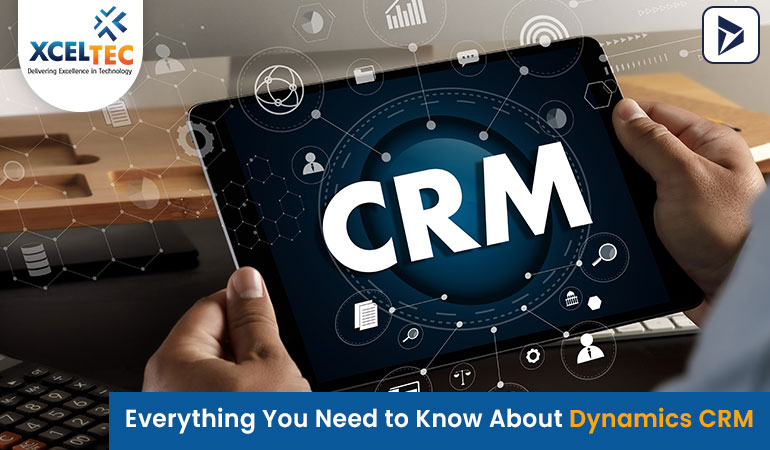It’s difficult to choose a CRM vendor; it’s even more difficult when you’re evaluating Microsoft Dynamics CRM, which has a lot of licencing and implementation options.
So, if you have any Dynamics CRM questions, we have the answers.
What is Dynamics CRM?
Microsoft Dynamics CRM is a piece of business software. It is customer relationship management software that assists organisations in managing their client database, generating new leads, engaging with customers, and resolving customer service concerns.
It’s a database that lets businesses organise and manage their customer and lead data at its most basic level. Users can contact consumers and leads using the programme, which records and tracks every customer interaction. This enables a company to create a complete picture of its client connection in order to tailor the customer journey.
How can it help businesses grow?
Dynamics 365 consolidates all sales and customer data into a single system, providing users with a single source of truth. This provides users with a comprehensive view of their customers’ journeys, allowing them to track customer journeys, generate and evaluate leads, and take opportunities.
The app can help raise customer satisfaction at all points of the sales funnel and improve long-term brand loyalty by allowing users to connect with their customers and provide better, faster service. Businesses can run more efficiently by reaching more customers while saving time and money by automating certain portions of the sales and marketing process.
How is Dynamics 365 deployed?
Cloud
SaaS, or software as a service, is software that is not installed on a user’s own device and is instead accessed through a web browser. Customers that choose this deployment option will utilise a cloud-hosted version of Dynamics, which is placed on the vendor’s servers and accessed remotely via the internet. Dynamics 365 SaaS instances are hosted on Microsoft’s public Azure cloud or through Microsoft partners’ managed Azure services.
On-premise
Local Business Data deployment, often known as “traditional” software deployment, allows users to host their Dynamics 365 software on their own or on the servers of an IT partner. Businesses that use Dynamics 365 on-premise will install the program on their own devices and keep all of their data locally.
Hybrid
Hybrid installations, also known as Cloud and Edge, are completely integrated with the Microsoft Cloud, yet transactions and data are stored locally on the user’s data center and synced as needed.
Dynamics 365 market information:
Salesforce, SAP, Oracle, and Microsoft are the Big Four in the CRM sector. Salesforce has dominated the market for several years, with an 18 percent market share. Microsoft’s CRM market share is believed to be around 4%, but it is expected to expand shortly as Dynamics 365 continues to develop and grow, while SAP and Oracle’s market share has been steadily declining.
What is the difference between Dynamics 365 and Salesforce?
Both Dynamics 365 and Salesforce are clever, modern CRMs that can be accessed via a web browser (though Dynamics can be implemented on-premise if needed, unlike Salesforce). Both provide the capability for sales force automation, customer service, and marketing.
The key distinction between Dynamics 356’s CRM offerings and Salesforce’s CRM offerings are the products’ accessibility. Dynamics 365 is typically less expensive than Salesforce and offers more licencing flexibility. As a result, Dynamics is more appealing to SMBs and small businesses, whereas Salesforce is frequently used by much larger businesses.
Closure
Get in touch with us for more!
Contact us on:- +91 987 979 9459 | +1-980 428 9909
Email us at:- sales@xceltec.com
Visit our website: https://www.xceltec.com/
 :
https://www.xceltec.com
:
https://www.xceltec.com












